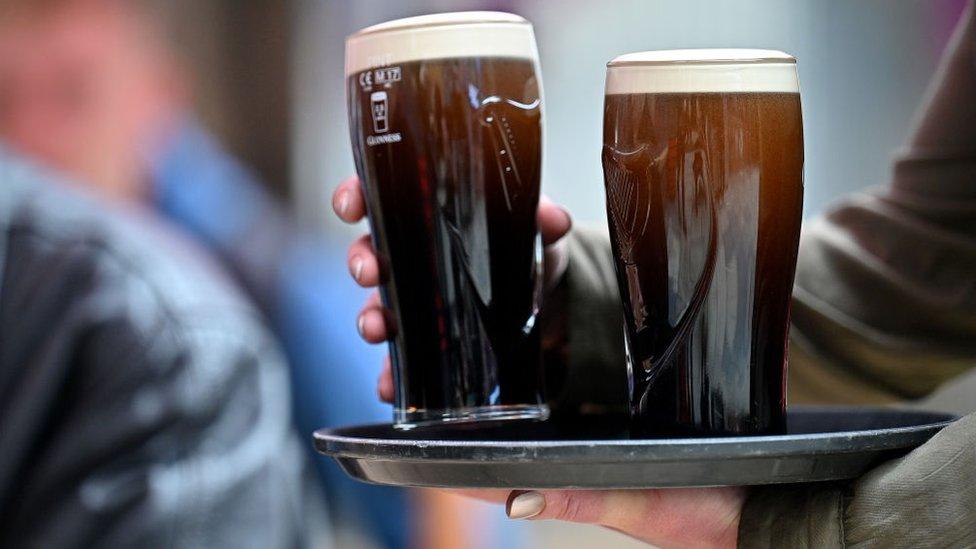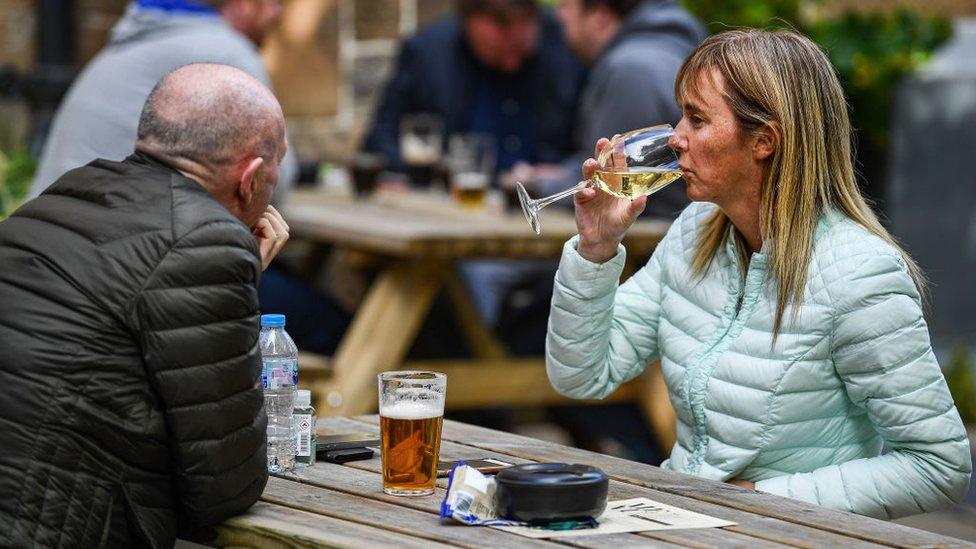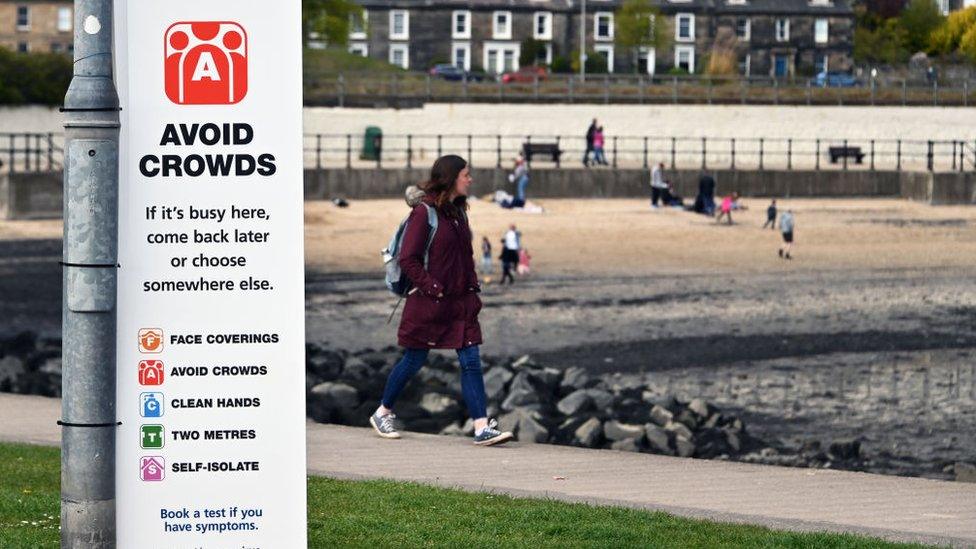Covid in Scotland: 'Lost summer' warning as lockdown easing paused
- Published

The hospitality industry is warning of the potential of "another lost summer" as Scottish ministers prepare to delay easing coronavirus restrictions.
Nicola Sturgeon said on Tuesday that moving Scotland to level zero was likely to be pushed back three weeks.
It means restrictions on bars, cafes, restaurants and hotels could be in place until the middle of July.
The first minister told MSPs the delay would ensure more people could be vaccinated.
Covid cases are continuing to rise in Scotland, where the infection rate is five times higher than it was in early May.
Ms Sturgeon's statement came after Prime Minister Boris Johnson announced on Monday that plans to lift restrictions in England would be delayed by four weeks until 19 July.
The Scottish Licensed Trade Association said the industry was now at "breaking point" and they called for more financial assistance for businesses.
Its managing director, Colin Wilkinson, said: "There needs to be an extension to the current support schemes available such as furlough, VAT reduction, deferral of loan repayments and so on.
"Our pubs and bars have already invested millions to provide a safe environment as we all learn to live with this virus and we need to be able to open without restrictions as soon as we can."
Mr Wilkinson said most hospitality businesses were continuing to operate at loss and racking up further debt.
They have increased staff costs as they have to provide table service, but fewer tables - and customers - because of social distancing rules.
'Never-ending hell'

But the situation is even worse for nightclubs, which would not even be allowed to open under level zero rules.
"This is a never-ending hell for hospitality workers and the businesses that employ them, especially those in the music and night-time sectors," said Stephen Montgomery, of the Scottish Hospitality Group.
He asked the Scottish government to "tweak the tiers" so businesses could operate safely but viably.
"The government has shown that it can be flexible and understanding when it wants to, as we've seen with the Euros and the fan zone," he added.
"All we're asking is for hospitality to be shown the same consideration."
He called on ministers to "get out from behind their desks" to understand how their policy decisions affect businesses, and to provide "proper financial support".
It was echoed by the Federation of Small Businesses in Scotland, which said state support should be "proportionate to the scale of the restrictions".
Furlough ends in September
From next month, employers will have to contribute more to the wages of furloughed employees ahead of the scheme winding up at the end of September.
Ahead of that, Finance Secretary Kate Forbes and her counterparts in Wales and Northern Ireland have written to the Chancellor of the Exchequer asking for an urgent meeting.
They want to discuss the financial recovery from the pandemic, including the furlough scheme.

Thousands of supporters have been allowed to gather in a Fan Zone in Glasgow to watch Euro 2020 matches
A formal decision on what level each area of Scotland will be in will not take place until next week, but Ms Sturgeon said on Tuesday it was "reasonable to indicate now that I think it unlikely that any part of the country will move down a level" as planned.
It means the country's mainland council areas will remain in either level one or level two, although many island communities including Orkney, Shetland and the Western Isles are already in level zero.
Ms Sturgeon said that "we need to buy sufficient time for vaccination to get ahead and stay ahead of the virus, and that is the reason for caution at this juncture".
She also said that a review of physical distancing rules would be published next week, along with a report on what life could look like once Scotland moves beyond level zero.
'We've been here before'
Trade minister Ivan McKee said the Scottish government was trying to make the situation as "painless as possible in this very difficult time for businesses".
He told the BBC's Good Morning Scotland programme: "We'll watch the data closely and, based on the direction the virus takes, then we're able to ascertain what measures could be taken.
"There's no point in loosening up too early and then we see a further spike in cases and hospitalisations. We've been here before [and] we don't want to see a third wave of that magnitude."
The Scottish Chambers of Commerce's chief executive Liz Cameron said the latest developments would be "frustrating and painful" for many Scottish businesses.
She added: "Any delay must be used to expand the vaccine rollout and deliver the crucial second doses that will move us out of lockdown restrictions faster."


- Published15 June 2021
